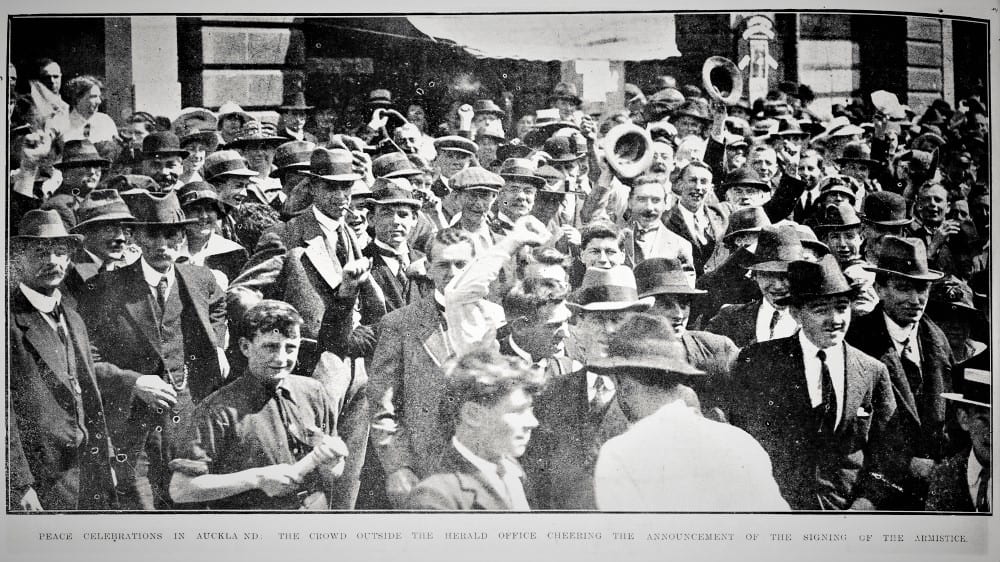by Linda Bryder*
While we rightly pause to commemorate the 16,500 plus New Zealanders who lost their lives in the First World War, let’s not forget those who survived the war only to succumb to a global viral infection during the last three months of 1918, just as the war drew to an end. This included over 8,500 New Zealanders in a population of around a million. Translating this ratio into today’s population size would mean no less than 42,000, which contrasts to the 16 admittedly sad personal losses under COVID-19 to date.
Did official public health responses in these respective pandemics make a difference? My answer is yes. In both cases the virus spread by droplet infection. In 1918, as in 2020, public health authorities acted swiftly to curtail public gatherings. In early November 1918 Auckland closed all schools, pubs and hotels, public halls, billiard rooms, shooting galleries, and other places of entertainment, and race meetings and dances were cancelled. And yet a quick glance at the notices in the daily press shows just how incomplete the closures were in 1918. Some public events proceeded, and there was no social distancing here.

“Peace celebrations in Auckland: the crowd outside the Herald office cheering the announcement of the signing of the Armistice,” Auckland Weekly News, 21 November 1918, Auckland Libraries Heritage Collections, AWNS-19181121-44-1.
But the real killer was the end of the war itself. Auckland received a cable falsely declaring the end of the war on 8 November. People flocked into the city to celebrate. One commentator declared, ‘As if by magic Queen Street just filled with people. It was one mass of laughing, crying, coughing and obviously sick people’. The deaths from the epidemic in Auckland peaked just a few days later with several hundred deaths in a day.
Auckland’s Chief Health Officer was determined not to repeat this when the real Armistice Day arrived 11 November and banned official celebrations. But other towns and cities around the country continued the celebrations. The virus spread like wildfire.
“Lockdown” in 2020 is the real difference, and matters. The Government is to be congratulated for its swift and effective action, and the RSA for not objecting to the cancellation of its traditional format of commemorations on ANZAC Day whilst remembering at a distance and in our “bubbles”. The last thing we want is a repeat of 1918.
* Linda Bryder is a Professor in History at the University of Auckland.
